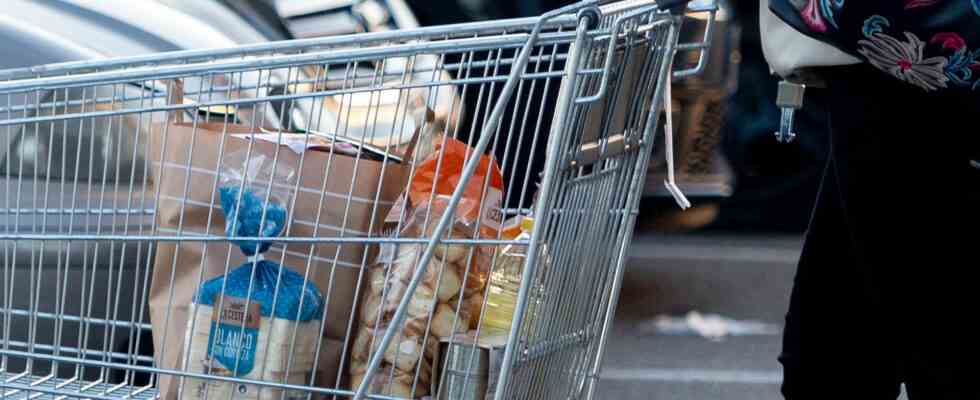Status: 01/16/2023 12:24 p.m
For many, rising cost of living is the biggest concern. The World Economic Forum sees inflation as a global risk this year. The example of Spain shows what can be done to counteract the price increase.
For months grocery shopping in Spain was no fun. Most prices only knew one direction: up. At the end of 2022, bread was around 15 percent more expensive than in the previous year, olive oil 25 percent and milk even 30 percent.
Discharges since the beginning of the year
New year, new luck: The left-wing Spanish government’s new relief package has been in effect since January 1st. For six months, the reduced VAT rate of four percent on staple foods will be completely eliminated. The rate for oil and pasta is five instead of ten percent. These reliefs are intended to help slow down inflation further.
But Spain is already doing better than any other eurozone country. In December, the inflation rate was 5.6 percent; in Germany, prices rose by 9.6 percent. What did Spain do better than Germany?
The “Iberian exception” in the price cap
Economist José Carlos Díez believes that the gas-electricity price cap that was introduced in May played a major role in this: “We were the first, because in our price system the electricity tariff was linked to the wholesale market, which meant that Spanish consumers already had to pay high prices very early on.”
Even if the EU sees it differently: “Spain can afford the price cap because the country has done good gas planning. We have a gas pipeline with Algeria, like Germany has with Russia, but in addition – not without alternatives.”
The EU initially hesitantly approved the “Iberian exception” for Spain and Portugal because it feared distortions of competition. This exception is now paying off for Spanish electricity customers: Last November, the electricity price was 22 percent below that of the same month last year.
Not everything will be cheaper
And now the discounts in the supermarket: a liter of olive oil no longer costs 7.55 euros on average, but only 7.21 euros. A kilo of rice instead of 2.59 euros now ten cents less. And 500 grams of grapes are available for 3.07 euros – before New Year’s Eve it was 3.19 euros.
However, what is not yet clear: will the reduction in VAT actually reach customers? In the first week of January, the consumer protection organization FACUA denounced seven retail chains to the National Competition Commission. They would not have passed on the reduction. Even if FACUA considers the effect of this tax cut to be manageable overall: the organization announces that it will regularly check prices.
In the election year, the opposition conservative People’s Party (PP) is claiming the idea of reducing the value-added tax as its own. However, she criticizes the fact that the tax has remained the same for meat and fish – these products play a major role in Spain’s kitchens.
45 billion relief package
But even if everything doesn’t get cheaper: the left-wing government of Prime Minister Pedro Sánchez from the socialist PSOE has planned further financial injections for the Spaniards. Low earners will get a one-time annual bonus in 2023 and pensions will rise. And last year, citizens already benefited from a rent control, cheap commuter tickets and a fuel price subsidy.
In total, Spain has spent 45 billion euros on various relief packages, partly financed with additional taxes for companies. And here, too, Spain – see gas price cap – introduced something that was hotly debated in Germany: an excess profit tax. It applies to banks and energy companies for two years.
Debt-financed charity of campaigners?
Are the Spanish anti-crisis measures debt-financed benefits with a view to the 2023 election year or are they economically sensible steps? Probably a mix of both. And they are at least partially successful. Overall, Spain’s economy weathered the recent crises quite well.
But despite Spain’s success with inflation, Germany can learn little from Spain, says economist Díez. Germany, too, has put together large relief packages. It’s different with the gas market: “I think Germany should copy the Spanish mixed gas model. You don’t need pipelines, but you need ports with LNG terminals, which wasn’t realized for a long time. That was a serious mistake.”
Spain could learn more from Germany on other issues, such as national debt and high unemployment. Spain is at the bottom of the euro zone with 12.4 percent – and Germany is the leader with three percent.

